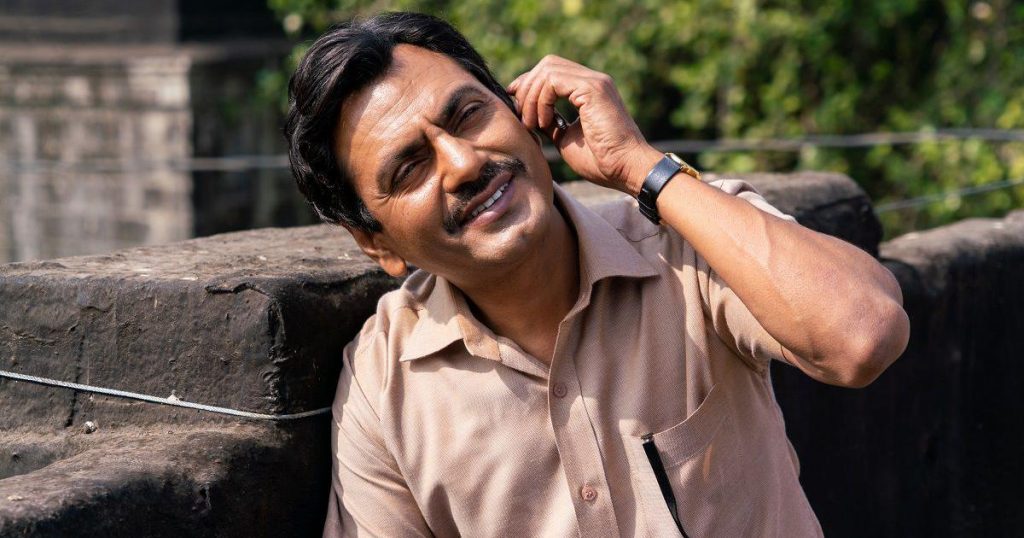In a scene from Serious Men (2020), Ayyan Mani is browsing through the Instagram account of his son, Adi. He informs the latter that his followers are rising fast. In order to make a comparison with the number of followers he has, the curious kid enquires from his father about the number of people following Shah Rukh Khan. Ayan immediately admonishes him by saying “Aukat Mein Reh.” This one line of dialogue forms the bedrock on which the thematic foundation of Serious Men depends – how to discern one’s aukat or worth within the society?
With Serious Men, Sudhir Mishra, whose last few films have faltered to deceive, bounces back with renewed mojo. Based on Manu Joseph’s novel of the same name, the film narrates the tale of Ayyan Mani (Nawazuddin Siddiqui) who works at the National Institute of Fundamental Research as the personal assistant of space scientist Dr Arvind Acharya (Nasser). The Research Institute serves as a microcosm, where Ayyan being an individual from the lower caste strata of the society (he is a Dalit), Dr Acharya addresses Ayyan with the choicest of nouns such as Moron, Imbecile & Knobhead. As to return the favour, Ayyan calls his boss and his ilk ‘Serious Men’ – individuals with the privilege of being in the upper echelons of caste and class.
So shouldn’t our discriminated protagonist retaliate against all the societal prejudices meted out to him? Sure enough, he does. But Ayyan,unlike Jabya in Fandry (2013), neither reacts by pelting stones at the people who are teasing him nor does he picks up a machete like Sivasamy in Asuran (2019) to wipe out his opponents. Instead, he selfishly devises strategies that catapult his lackadaisical, slow-learner son, Adi (Aakshath Das), to the status of a mathematics and science genius. Ayyan holds the opinion that IQ and social status are not linked and though he can’t alter his cast, at least he can earn a position in society by utilising his sharp-witt. But as with Newton’s third law of motion, Ayyan’s action will eventually have an opposite and equal reaction on the psyche of his young son…
Ayyan has a firm conviction that his father was the first generation, who never went to school; he himself belongs to the second generation or 2G, who went to school and studied but didn’t realize the importance of education. So, his son, who will belong to the third generation or 3G, will be sent to the best of schools and he will drill the importance of education into him so that he will be a successful person in life. And by the time his grandchildren are adults, they will belong to the fourth generation or 4G and have all the comforts of life at their disposal. As a tiny molecule in society, Ayyan can make plans but it is up to the will of the Almighty to determine how things will turn out. In the words of Dr Acaharya, Ayyan’s angst is right but his actions are not.
Adi’s pseudo-charismatic prowess spreads far and wide through participation and winning prizes at Science Quiz competitions and he becomes a treasured possession amongst the school authorities, who had previously denied him admission. And as the saying goes that when the flower blossoms, the bee will come. So inevitably, Adi is approached by news channels for a TV interview. After the Fourth Estate, it is quite imperative the Mani family will next be approached by politicians. And sure enough, comes Keshav Dhavre (Sanjay Narvekar) and his Carnegie Mellon MBA daughter, Aparna (Shweta Basu Prasad), the first from the Dalit community to have studied at the reputed institute, to reap benefits from Adi’s popularity. The father-daughter duo wants to use the hyped-up image of Adi to convince members of the chawl to sign the documents for a redevelopment project. Even with such clichéd plot points in the storytelling, it is the characterization of Aparna that stands out. As a brutal victim of domestic violence, she abhors using her vicious marital past as a ‘Dalit woman victim card’ for the election campaign. Her political aspirations as well as her principles are in the right place as she desires to shed away centuries old pre-conceived notions of politicians as money-minded individuals with ulterior motives that benefit them alone.
There is a circularity in the pattern that propels the plot forward. Fraudulence is the thread with which we weave together both Ayyan and Dr Acharya’s personas. Acharya utilizes funding from the government to send sterilized containers into the upper stratosphere to discover space microbes, an expensive exercise that fails and which he then tries to cover up. Whereas, Ayyan manipulates people through various means to make his son popular. In many ways, Ayyan symbolically represents the millions of parents in our country, who forcefully thrust the onus of fulfilling their shattered dream upon the shoulders of their children.
Performance-wise, all the actors are spot on be it the experienced ones like Siddiqui, Nasser, Navrekar and Prasad or even the newcomer Aakshath Das playing Adi. Indira Tiwari, in particular, playing Ayyan’s wife, Oja, makes a strong imprint on the film. The Czech cinematographer Alexander Surkala’s evocative framings bring us close to the characters while the editing rhythm unerringly created by Atanu Mukherjee does not let any scene outstay its welcome. However, Raat Hai Kaala Chhata, sung by the multi-talented Swanand Kirkire, fails to create the intended ripple within the story.
Overall, the central message of Serious Men might seem obvious and many of its narrative elements even recycled but nevertheless, it still boasts of a warm, empathic heart and an intelligent perceptive. And that, finally, is its biggest success.
Hindi, Drama, Comedy, Color


